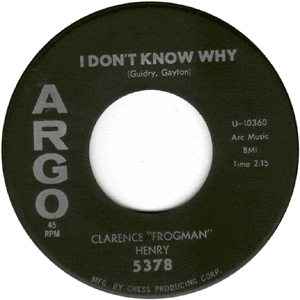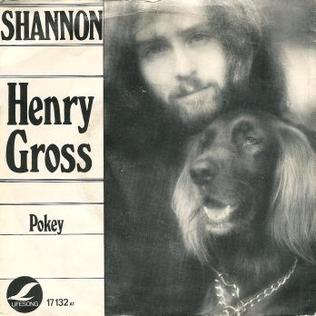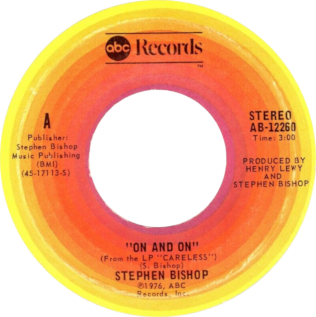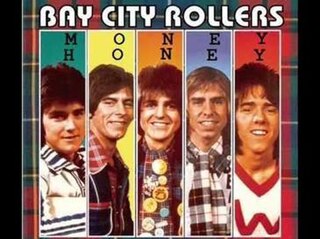
"Ain't Nothing Like the Real Thing" is a 1968 single released by American R&B/soul duo Marvin Gaye and Tammi Terrell, on the Tamla label in 1968. The B-side of the single is "Little Ole Boy, Little Ole Girl" from the duo's United LP. The first release off the duo's second album: You're All I Need, the song—written and produced by regular Gaye/Terrell collaborators Ashford & Simpson—became a hit within weeks of release eventually peaking at number eight on the US Billboard Hot 100 and number one on the Hot Soul Singles chart, the first of the duo's two number-one R&B hits. In the UK "Ain't Nothing Like the Real Thing" reached number 34.

"Billy Don't Be a Hero" is a 1974 pop song that was first a UK hit for Paper Lace and then, some months later, a US hit for Bo Donaldson and The Heywoods. The song was written and composed by two British songwriters, Mitch Murray and Peter Callander.

"You'll Never Find Another Love Like Mine" is a song written by Kenny Gamble and Leon Huff and performed by R&B singer Lou Rawls on his 1976 album All Things in Time. The song proved to be Rawls' breakthrough hit, reaching number 1 on both the R&B and Easy Listening charts as well as number 4 on the dance chart and number 2 on the US Billboard Hot 100. This was the first and only time that one of Rawls' records reached Billboard's pop Top Ten.

"Oh Girl" is a song written by Eugene Record and recorded by American soul vocal group the Chi-Lites, with Record on vocals and also producing. It was released as a single on Brunswick Records in 1972. Included on the group's 1972 album A Lonely Man, "Oh Girl" centers on a relationship on the verge of break-up.
Starbuck was a rock band formed in Atlanta, Georgia, in 1974 by keyboardist/vocalist/record producer Bruce Blackman and marimba player Bo Wagner. Both Blackman and Wagner, along with guitarist Johnny Walker, had previous success with Mississippi-based "sunshine pop" group Eternity's Children, scoring a Billboard Hot 100 hit with "Mrs. Bluebird" in the summer of 1968. Wagner worked as a studio musician in Los Angeles in the early 1970s, appeared on The Lawrence Welk Show, and played drums for the extravagant pianist Liberace.

"Smokin' in the Boys Room" is a song originally recorded by Brownsville Station in 1973 on their album Yeah!. It reached number 3 in Canada and on the US Billboard Hot 100, and was later certified by the RIAA.

"(I Don't Know Why) But I Do" is an R&B song written by Paul Gayten and Bobby Charles, and performed by Clarence "Frogman" Henry.

"This Masquerade" is a song written by American singer and musician Leon Russell. It was originally recorded in 1972 by Russell for his album Carney and as a B-side for the album's hit single "Tight Rope". The song was then covered on Helen Reddy's 1972 album, I Am Woman. It was then recorded by American vocal duo, the Carpenters, for their 1973 album Now & Then and as the B-side of the Carpenters's single "Please Mr. Postman". Three years later, "This Masquerade" was recorded by American singer and guitarist George Benson, who released it on his 1976 album, Breezin'. Benson's version, featuring Jorge Dalto on piano, was released as a single and became the first big hit of his career.

"Clean Up Woman" is a song by Betty Wright from her second studio album, I Love the Way You Love (1972). Written and produced by Clarence Reid and Willie Clarke, it was released in November 1971 in the U.S. as a 7" single with "I'll Love You Forever" on the B-side. The song's distinctive guitar lick was played by Willie "Little Beaver" Hale.

"Georgy Girl" is a song by the Australian pop/folk music group the Seekers. It was used as the title song for the 1966 film Georgy Girl. Tom Springfield, who had written "I'll Never Find Another You", composed the music and Jim Dale supplied the lyrics. The song is heard at both the beginning and end of the film, with markedly different lyrics. It was nominated for an Academy Award for Best Original Song but the prize went to "Born Free". It was peformed at the 1967 Oscars ceremony by Mitzi Gaynor.

Rockin' Chair is a hit 1975 song by singer Gwen McCrae. The song is not to be confused with either Fats Domino's 1951 R&B hit of the same name or the 1929 "Rockin' Chair" by Hoagy Carmichael.

"Shannon" is a 1976 song by Henry Gross. It became an international hit, reaching #6 and achieving gold record status in the U.S. Billboard Hot 100 and #5 on the Cash Box Top 100. The song reached #1 in Canada and New Zealand.

"Couldn't Get It Right" is a 1976 song by the Climax Blues Band. The song was written after the band's label told them that their 1976 album Gold Plated lacked a standout track and asked them to "try and write a hit". They then wrote it, in the words of its bassist Derek Holt, "from absolutely nowhere", and it hit #10 on the UK Singles Chart.

"Let Her In" is a song written and recorded by English singer-songwriter Gary Benson, and released as a single in 1973. It was covered by John Travolta in 1976, and was released as the first single from Travolta's self-titled second album. Travolta's version was a hit, spending five months on the U.S. Billboard Hot 100, and peaking at number 10. It also reached number 16 on the Adult Contemporary chart. On the Cash Box chart, the song peaked at number five. In Canada, "Let Her In" reached number seven on the RPM Top Singles chart.

"The Things We Do for Love" is a song by British band 10cc, released as a single in 1976. It later featured on the album Deceptive Bends released in 1977 and was the group's first release after the departure of band members Kevin Godley and Lol Creme.

"On and On" is a song by American singer-songwriter Stephen Bishop. The song, from his debut album Careless, became a major hit, peaking at number 11 on the U.S. Billboard Hot 100 and spending 28 weeks on the chart. In Canada, the song peaked at number 6.

"Money Honey" is the title of a 1975 international hit single by the Bay City Rollers, taken from their album Rock n' Roll Love Letter and in the UK on their album Dedication. The power-pop recording was issued in the US as the album's lead single in January 1976, reaching number nine on the Hot 100 in Billboard magazine that March. "Money Honey" was the Bay City Rollers' second US Top 10 hit. It reached number seven on the Cash Box chart. The follow-up single was the album's title track, "Rock and Roll Love Letter". In the UK, "Money Honey" was released in November 1975 and reached number three, becoming the group's ninth Top 10 single.

"Nice to Be with You" is a 1972 song, from the album of the same name, by Gallery.

"The Other Guy" is a song by Australian soft rock band Little River Band. It was released in February 1983 as the third and final single from the band's 1982 Greatest Hits album. The song also introduced the band's new lead vocalist, John Farnham, who replaced Glenn Shorrock.

"I Got to Know" is a song recorded by the American band Starbuck. It was the second of three singles from their debut LP, Moonlight Feels Right. Written and produced by Bruce Blackman, the song was released in September 1976. Like its predecessor, "Moonlight Feels Right," the song features a prominent marimba solo by co-founding band member Bo Wagner.



















